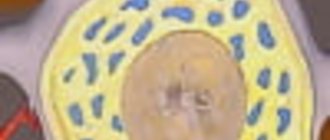Depression is a very common mental disorder today, the causes and symptoms of which are well studied and described. There are also effective methods of treating it. Severe types of this disease - suicidal depression (obsessive idea to commit suicide) and bipolar (severe mood swings, obsessive thoughts, inflated self-esteem, etc.) must be dealt with by specialists in the field of psychiatry. For other types of depression, there are methods that complement professional help, and sometimes replace it, that give the answer to how to get out of depression on your own. These are depressions:
- seasonal;
- adynamic (weakness, decreased performance, fatigue);
- anxious (feeling of anxiety);
- hormonal, one of the subtypes of which is postpartum;
- tearful (constant desire to cry);
- anesthetic (loss of emotions);
- dysphoric (groundless irritability, attacks of anger and malice);
- ironic (difficult to define, as it is characterized by fun and excessive talkativeness, making fun of others) and others.
Causes
Any form of depression can become prolonged. Most often, it develops into a seasonal form, which initially appears in the spring or autumn, or a postpartum type, which occurs in a woman in the first days after childbirth. Diseases of major, atypical, psychotic, bipolar and physical forms can also become chronic.
The main characteristic of protracted depression is the long period of its manifestation. For children they are one year, for adults – at least two. Usually it is combined with relatively mild symptoms, but even this becomes a big problem for patients. Women experience the disease more often, which is partly due to the fact that men can carry the disease in a latent form for several years.
The chronic type of illness usually becomes the result of depression initially belonging to this type, its natural development or incorrect treatment. Regular stress or a serious mental blow can also lead to it.
Most often, symptoms of prolonged depression appear due to the following factors:
- chronic fatigue, overwork;
- increased responsibility, excessive sense of duty;
- anxiety, shyness, vulnerability, serious fears;
- mental disorders or injuries;
- loss of a loved one or illness;
- making a serious diagnosis;
- the development of certain diseases, especially endocrine ones;
- financial problems, large debts or loss of money;
- difficulties at work, poor relationships with the team;
- conflict situation within the family;
- separation from a loved one or divorce;
- reaching old age and retirement;
- alcohol abuse or drug use.
Most of these factors are faced by young girls, which also causes the widespread spread of the disease among women. In some cases, it is enough to endure any of the listed events once, while in others the psyche can cope with problems tens or hundreds of times.
Most often, a protracted type of depression manifests itself in the spring or autumn months, and the presence of obvious causes does not always occur.
Consequences of depression
A bad mood is a phenomenon quite familiar to each of us. Some of us are more prone to episodes of low mood, others less so, but everyone will agree that no one likes to stay in such a state for a long time. Often, low mood is not taken seriously, some even treat it with contempt and call this state “weak will”, or “the desire to attract attention to be pitied”, etc. Of course, there are times when we can demonstrate a “bad” mood to receive attention, care and other benefits, but when we are faced with the experience, and not the demonstration of a depressed mood, especially if this state lasts for a long time, this is something that requires serious attention.
The fact is that low mood for two or more weeks is already a symptom of a depressive state. But here again you may come across the opinion that depression is “for weaklings”, treating depression is “stupid, it will go away on its own, you just need to pull yourself together”, “going to a psychiatrist/psychotherapist is stupid” and other stigmas . All such attitudes can ultimately lead to the fact that a person remains in a depressed state for a long time, it does not find treatment, and acquires a protracted chronic course. And this is where new problems appear, because chronic depression has its consequences. Let's discuss them.
1. Social and economic consequences - long-term low mood depletes the psyche, performance and the desire to achieve goals decrease. The person works worse. than he could, does not reach the professional and career heights that he could have achieved, does not have the wealth that he could have, etc. Interpersonal contacts also suffer - in order to be friends, to love, to maintain various kinds of relationships, strength is needed, but chronic depression takes them away or suggests that they simply do not exist.
2. Deterioration of health - it is no secret that physiological processes in our body have a clear relationship with mental well-being. Chronic depression can lead to the emergence of psychosomatics, or to the exacerbation of existing physical ailments.
3. Decrease in cognitive functions (attention, memory) and intellectual potential - many studies have found that long-term depression leads to organic changes in the brain, thereby can have a negative impact on our memory, attention and intelligence. This point is especially important in relation to the elderly and children.
4. Personality (character) change - depression distorts our conclusions, we begin to see the past, present and future in a pessimistic light, draw incorrect conclusions, and begin to experience self-doubt. With long-term depression, these “depressive attitudes” begin to become part of our personality, change our character, making us passive, isolated, and unsure of ourselves.
5. Suicidal risk - this consequence follows from the previous paragraph. When the world and you in it are seen only in black, hope for better changes is lost - the risk of suicide increases. There are frequent situations when, during the course of chronic depression, the patient repeatedly resorts to suicide attempts, that is, a failed attempt does not stop suicidal thoughts, life does not return the desired value to a person whose depression continues.
We examined the most common consequences of chronic depression, the insidiousness of which is often manifested in its low intensity, but the persistence of its presence.
If you notice a prolonged low mood in yourself or your loved ones, even if its severity does not seem excessive to you, seek advice from a specialist to clarify the condition and get the necessary help.
Symptoms
With prolonged depression, the symptoms are usually not as pronounced as during an exacerbation of this disease of the usual type. Its most notable symptom under any circumstances and reasons for its development is a sad state. It can be present in many different forms, causing different feelings. But the main distinguishing feature of all symptoms of deep depression is the long period of their manifestation.
What other signs can be used to recognize prolonged depression:
- tearfulness, melancholy state;
- apathy, lack of interests and desires;
- depression, feeling of hopelessness;
- self-flagellation, remembering old mistakes;
- intrusive negative thoughts;
- anxiety, development of fears;
- decreased self-esteem;
- loss of meaning in life and all goals;
- a feeling of misunderstanding from others;
- distrust of people, refusal to help;
- problems sleeping, insomnia;
- loss of appetite, nausea;
- increased fatigue;
- decline in sexual desire;
- desire for loneliness;
- deterioration of intellectual activity.
Such symptoms are identical to major depressive disorder, but they occur not only simultaneously, but also separately. Along with them, other dangerous manifestations of this disease may come. If a person remains in this state for a long time, there is a high risk of facing serious consequences. The least harmful can be considered nervous breakdowns, deterioration in appearance, and loss of physical strength. The main danger of this condition is the desire to commit suicide. This is due to the complete loss of the meaning of life.
Diagnostics
It is necessary to distinguish severe depression from other forms of the disease. Patients suffering from severe depression often experience bouts of crying and sudden weight loss or weight gain. Patients experience fatigue, have an increased need for sleep, and suffer from chronic pain. An increased need for sleep can be a sign of a nervous disorder. A person ceases to show interest in usual affairs, in his family, he becomes aggressive. Patients often experience suicidal thoughts.
A person suffering from deep depression needs to consult a psychiatrist or psychotherapist who will identify the causes of the disease and select the optimal treatment.
Features of the disease in children
Adults are much more resilient. And the fragile psyche of children can suffer from such insignificant factors that their parents could encounter every day without experiencing any consequences. Most often, prolonged depression in childhood develops for its own reasons.
What usually provokes the disease in children:
- long-term treatment of various diseases;
- damage to the nervous system;
- tendency to suspiciousness, nervousness;
- unfavorable family environment;
- presence of mental disorders.
For some children, all it takes is one big fight between their parents to become depressed. Others are able to endure this many times, but any of the subsequent conflicts can lead to the development of the disease. At the same time, the signs of deep depression in childhood are practically the same, but some features do occur.
Special features of childhood depression:
- regular quarrels with loved ones, outbursts of aggression;
- low intellectual abilities, problems at school;
- belief in lack of value for parents;
- indecisiveness, constant feelings of guilt, isolation;
- Constant thoughts about death or the desire to die.
With low-grade depressive disorders, a teenager may not experience significant symptoms. In such cases, everything is limited to frequent sadness and a negative outlook on the world. But prolonged manifestations of even such mild depression can result in its intensification or dangerous consequences.
Treatment of severe depression
It is advisable to begin treatment of severe depression with the weakening and relief of the main symptoms.
The use of antidepressants brings a noticeable improvement in condition and mood. In severe cases, drug treatment in a hospital is necessary. The most effective use of pharmacotherapy is in combination with psychotherapy. Psychotherapy can be carried out in group, individual and family forms.
New treatments such as biofeedback and transcranial magnetic stimulation are also effective for major depression.
In addition to the main treatment, restorative therapy is indicated: walks in nature, massage, etc. The approach to the patient plays a huge role. Patients often show irritation and anger. It is very important that a person with depression receives proper treatment from a doctor.
| | Find out more: How is severe depression treated in a hospital? |
We can help you! Call us
Treatment
Some types of depression are classified as incurable. Often this also applies to protracted ones. But even if it is impossible to completely cure the disease, it is possible to achieve suppression of all symptoms and normalization of life. Therefore, it is very important to engage in therapy. Before this, you just need to undergo a diagnosis, including performing mental tests and talking with a psychotherapist. Based on this, the doctor will make a diagnosis and also prescribe therapy appropriate to the case.
Psychotherapy is recognized as the main way to treat depressive disorders. It includes regular cognitive-behavioural, interpersonal and family sessions with a specialist. Their goal is to put the patient’s psyche in order, return him to a positive outlook on the world, establish social activity and achieve relief from all symptoms. Such psychotherapeutic courses can be supplemented by other subtypes of treatment. Usually they are carried out almost daily - at least 3-4 times a week.
The second option for treating prolonged depression is medication. It is aimed at suppressing symptoms, restoring the nervous system and reducing susceptibility to any irritants. It is important to consider that some tablets may not provide a positive effect even after the full course of use. In such cases, the doctor prescribes other drugs until an effective option can be found.
Groups of drugs used:
- stimulating antidepressants (Fluoxetine, Imipramine) – relieve melancholy, apathy and lethargy;
- sedative antidepressants (“Mirtazapine”, “Paroxetine”) - help fight irritability, anxiety, and sleep disorders;
- herbal sedatives (“Hypericin”) are easily tolerated medications that suppress symptoms of depression when they are mild.
Some drugs increase anxiety. This is especially true when treated with stimulant antidepressants. In such situations, tranquilizers may be prescribed to normalize the condition.
Electroconvulsive therapy provides good assistance in the fight against depression. It involves deliberately stimulating seizures through electrical stimulation. The result is the production of mood-enhancing substances.
Signs
The following are symptoms of severe depression:
- Sleep disorders: difficulty falling asleep at night, insomnia, waking up in the morning, nightmares;
- Feels tired during the day and performance is significantly reduced;
- Inhibited;
- Weight changes: the patient loses weight, or vice versa, weight gain occurs;
- Decreased libido;
- Hallucinations, delusions;
- Reduced self-esteem;
- The patient feels and behaves insecurely;
- Blames himself and expresses self-deprecating ideas;
- A man sees his future in dark colors and bleakly;
- Having thoughts of suicide
If you notice these symptoms, do not delay - the disease will not go away on its own, contact a specialist.
Folk remedies
At home, you can easily cope with some symptoms using traditional medicine. Many recipes suppress sadness, improve the functioning of the nervous system and stimulate the production of joy hormones. They should be used in moderation after consulting a doctor.
One of the most popular folk remedies is warm baths with the addition of beneficial substances. It is best to take them in the morning or late evening. It is enough to add a little of the chosen product to a bath filled with warm water and lie in it for half an hour. Essential oils of lemon, lavender and rosemary, juniper, spruce needles, natural honey, myrtle petals, and infusion of poplar buds are especially effective.
Regular massages are highly effective. Carrying them out on your own can be difficult, but if desired, it is quite doable. You just need to massage your body with light, pleasant movements, lubricating your hands with essential oils that have a calming effect.
You can also get rid of prolonged depression with the help of tinctures or decoctions. They should be taken before meals or before bed. Ginseng root, Eleutherococcus, and Rhodiola rosea are considered very useful. Preparations based on Chinese lemongrass, aralia, mint, valerian, lemon balm, hops, motherwort, lavender and peony are no less effective.









